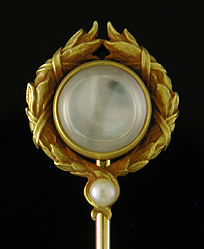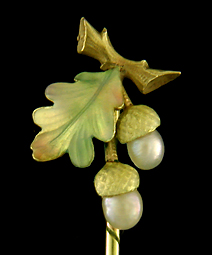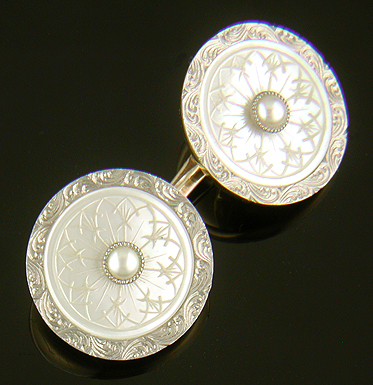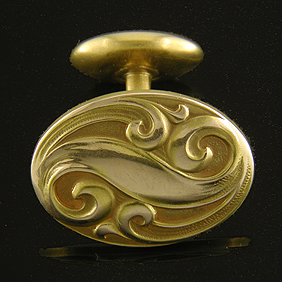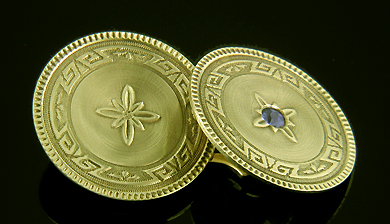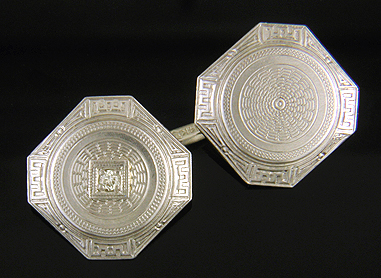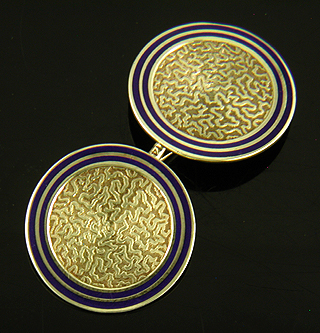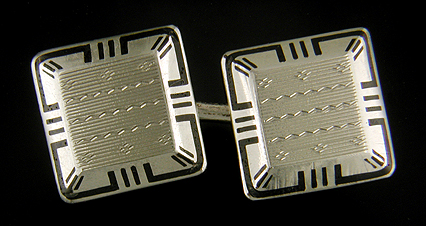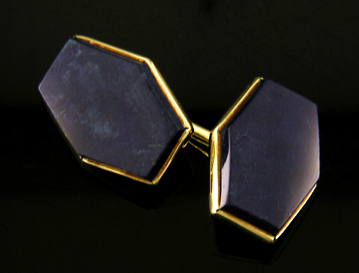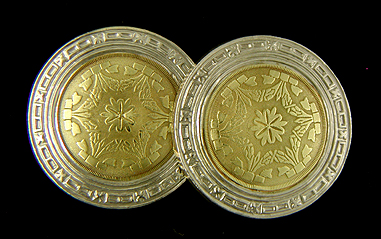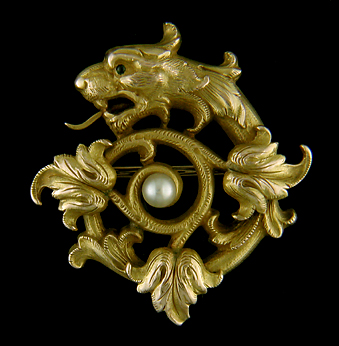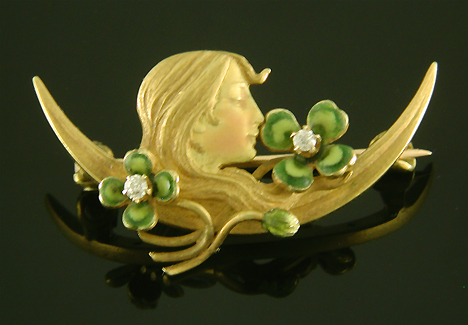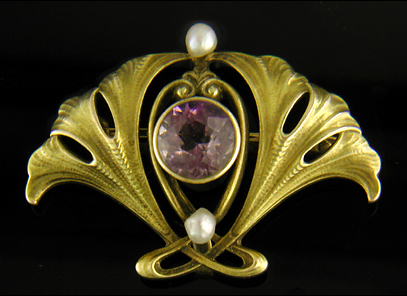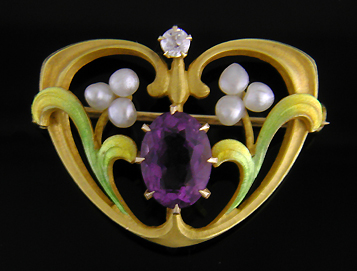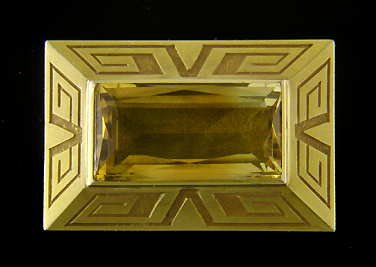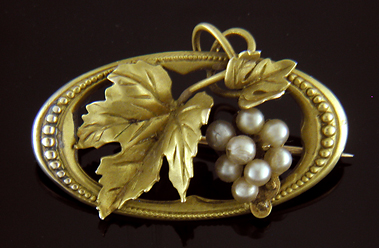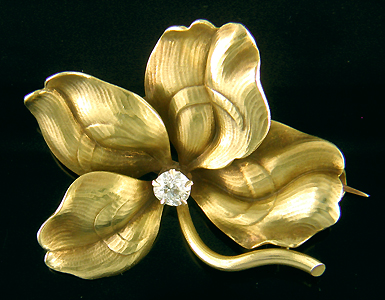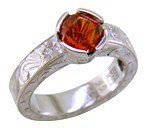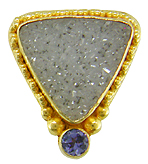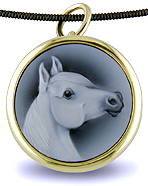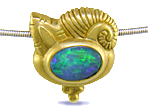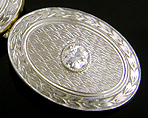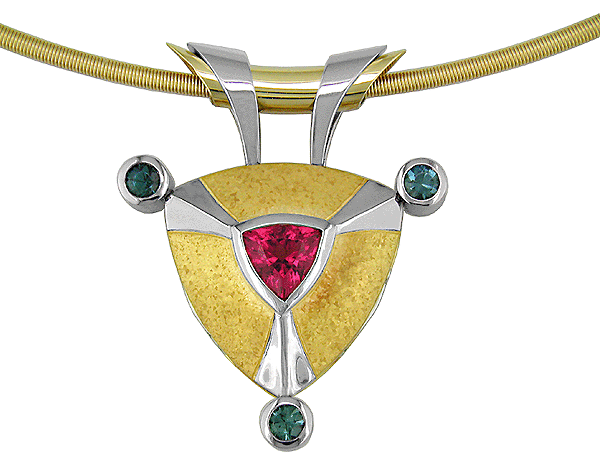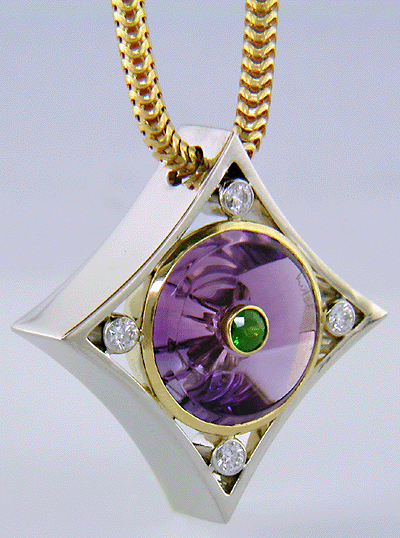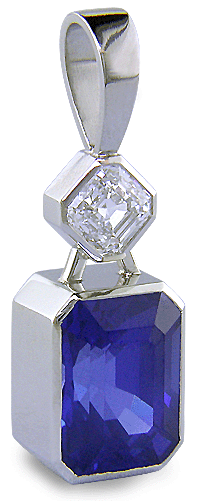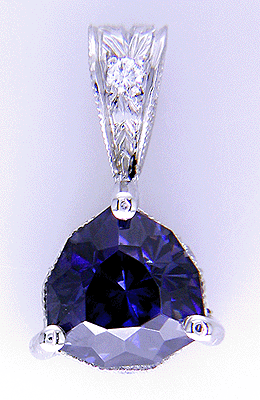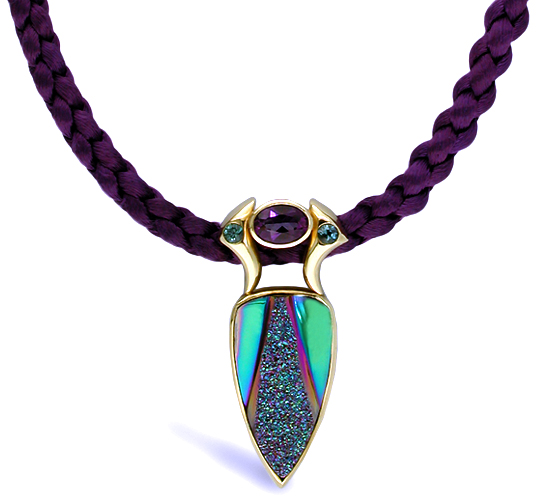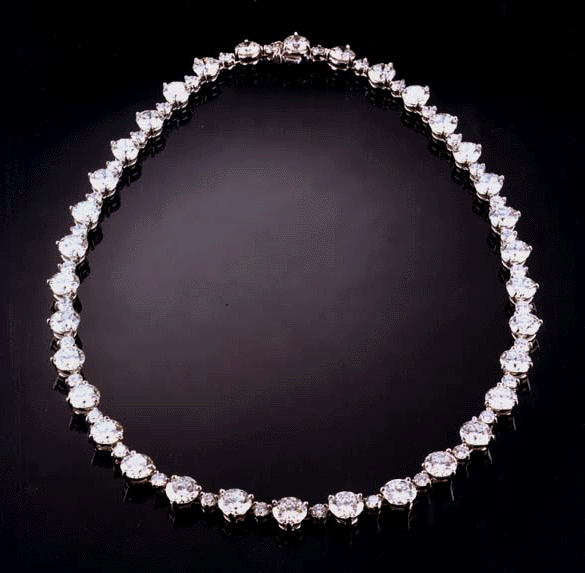The last several weeks we have been taking a Holiday tour of the Estate Jewelry and Antique Cufflink Galleries. This week we are taking a look at one of the less celebrated, sometimes forgotten, estate jewels ... the stickpin.
In the 19th and early 20th centuries no sartorially resplendent gentleman would be seen without a stickpin to secure his cravat or tie. In the 21st century these elegant jewels are often seen gracing jacket lapels or the front of a hat. Below is a sampling of these wonderful diminutive jewels from the early decades of the last century.
The maker of this stickpin, Carter, Howe & Company, created a menagerie teeming with serpents, dragons, griffins and other exotic creatures. This example features entwined serpents with jealous green eyes guarding a regal purple amethyst. A small fresh water pearl is set above the serpents like a distant, full moon. Crafted in 14kt gold, circa 1900.
Another example from the Carter, Howe menagerie of exotic and mythical beasts. Here a fierce dragon is either protecting or impaled on a golden sceptre set with a pearl. The dragon watches with a wary dark green eye, a hallmark of the golden chimeras Carter, Howe created. Crafted in 14kt gold, circa 1900.
A vigilant border collie watches from within a dome of rock crystal. The pooch is beautifully sculpted with a finely detailed coat, whiskers and soulful eyes. The miniature masterpiece was created by an artist meticulously carving the image into the reverse of a polished dome of rock crystal. Then, using brushes as small as a single hair, the collie was carefully painted with fine, lifelike details. Crafted in 18kt gold, circa 1880.
A stylized palmette soars above a luminous pearl framed with flowing geometric scrolls. A dramatic example of the beautiful Egyptian Revival jewels created in the early 1900s. Victorian and later jewelry makers often found inspiration in the jewels and designs of ancient civilizations. Created by Whiteside & Blank in 14kt gold, circa 1910.
A striking heliotrope, or bloodstone, set in a distinctive Arts & Crafts stickpin. The early Arts & Crafts movement drew significant inspiration from the craftsmanship and designs of the Middle Ages. The cruciform-shape of the stickpin and bloodstone reflect the Victorian interest in the symbols and spirituality of the earlier period. Created by The Brassler Company in 14kt gold, circa 1910.
Continuing the theme of Gothic or Medieval inspired jewels, this menacing stickpin features a winged serpent warily clutching a small pearl. The charming little fellow is the perfect miniature gargoyle to keep demons and goblins from a lapel or tie. The rich detail of the stickpin is a nice example of the fully modeled, sculpture-like miniature jewels of the period. Beautifully crafted by Whiteside & Blank in 14kt gold, circa 1900.
During the mid Victorian period (circa 1860) through the 1920s, equestrian and hunt-related jewelry were all the rage. This beautifully designed stickpin features an energetic, alert horse with a small red stone (likely a garnet) set as the eye. The dramatic, richly detailed design of the horse suggests the stickpin was created during the Art Deco era of the 1920s and 1930s. Crafted in 14kt gold, circa 1925.
This stickpin exudes classical elegance with a luminous moonstone surrounded by a wreath of laurel leaves. The laurel wreath is exquisitely crafted and finely detailed. The moonstone is complemented by a small white pearl set below. Created by Whiteside & Blank in 14kt gold, circa 1900.
An oak leaf and two acorns grow from a small branch. The oak leaf is beautifully enameled with shimmering shades of green, yellow and pink. The acorns are set with two small pearls. Possibly created by Krementz & Company in 18kt and 14kt gold, circa 1900.
Stickpins have been described as miniature sculptures set atop shafts of gold. They were created in an almost limitless variety of designs and styles. Above is only a small sampling.
These and other fine stickpins can be found in the
Antique and Estate Jewelry Gallery.

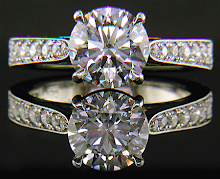
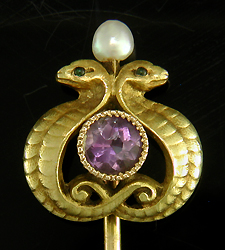
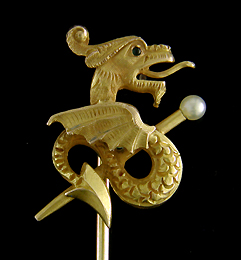
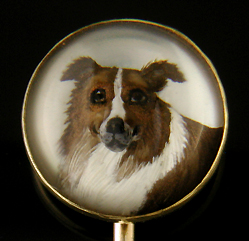 Border Collie
Border Collie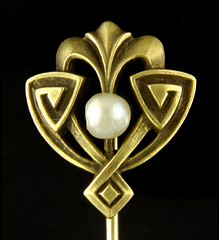
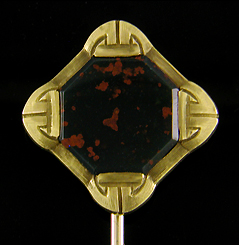
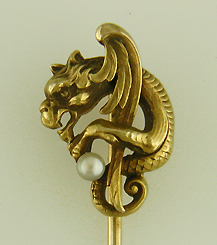
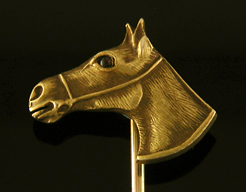 Equestrian
Equestrian